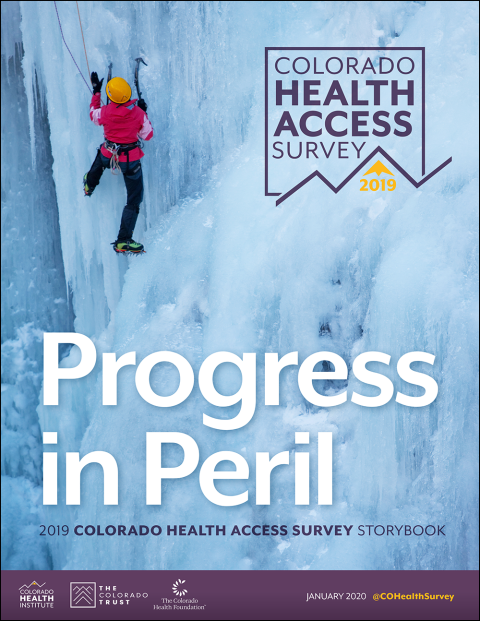The 2019 CHAS sheds new light on the health of Coloradans and the stories behind the statistics.
While there has been little change in the state’s uninsured rate, Colorado has lost ground on affordability of insurance and coverage for children. New analysis shows many Coloradans struggling to afford housing, food, and medical care, all of which can affect health. This all points to work that must be done to secure the gains of the past decade and build a more equitable system.
Poverty and Health
When people’s incomes are too low to afford necessities such as food or utilities, their health is profoundly affected. Coloradans with incomes below the federal poverty level are twice as likely as other Coloradans to report fair or poor health (26.7 percent, compared with 13.0 percent of those with higher incomes).
Housing, Food, and Health
New CHAS data show that there is a strong connection between housing and food security and health. People experiencing unstable housing or who have not been able to afford food are more than three times as likely to report poor general, mental, and oral health.
Fair Treatment
Most Colorado adults say they are treated fairly by the medical system. Yet nearly one in six (15.1 percent) say that they are sometimes or often treated unfairly when getting medical care. Race, ethnicity, age, and gender are a few of the reasons people believe they were treated unfairly. Most of those who report unfair treatment said that the experience caused stress, which can negatively affect health.
Stuck at 6.5
Colorado’s uninsured rate remains at 6.5 percent — statistically unchanged since the 2015 survey, the first after the ACA took effect. The lack of improvement is striking, considering a historically strong economy. Colorado did see slight growth in job-based insurance in 2019.
More Hispanic/Latinx Children Uninsured
Two years ago, Colorado had insured 97 percent of its children. But that progress has started to reverse, particularly for Hispanic/Latinx children. Their uninsured rate tripled from 2.4 percent in 2017 to 7.9 percent in 2019.
Backsliding on Affordability
The share of Coloradans struggling to pay medical bills has climbed back to its pre-ACA level of 18.1 percent. Meanwhile, 30.6 percent of Coloradans received a surprise medical bill in the past year.
Mental Health
In 2019, 15.3 percent of Coloradans reported poor mental health, compared with 11.8 percent in 2017. The increase could signal worsening mental health — and an increased willingness to talk about it.
Toll of Drugs and Alcohol
More than a million Colorado adults (26.9 percent) say that they, a loved one, or a close friend has been addicted to alcohol or drugs in their lifetime.
Use of Care: More People Visited the Doctor and Dentist
Most Coloradans — 81.1 percent — report visiting a general doctor in the past year. Nearly three-quarters of Coloradans (73.6 percent) visited the dentist or dental hygienist in the past year — an encouraging increase over the past decade.



